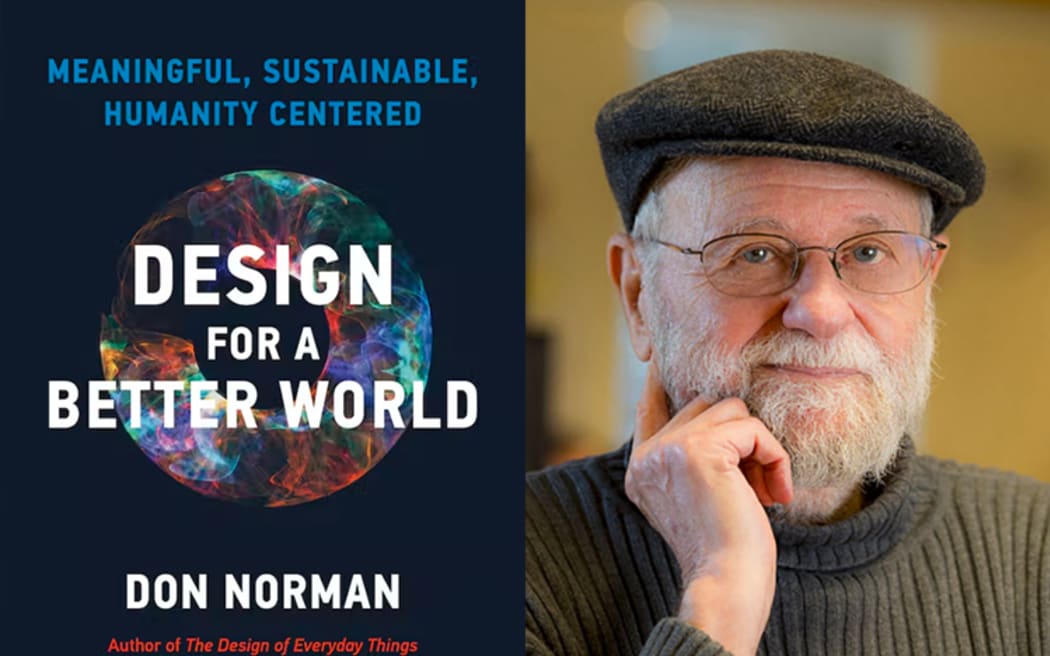Think the world is in a mess, with growing climate problems and inequality? Humans designed it this way - and we're the only ones who can fix it, Professor Don Norman says.
He's a former Apple executive and design pioneer who says we need to change our priorities and put humanity rather than profit at the centre of our world.
His new book is called Design for a Better World, How to Create a Meaningful, Sustainable, and Humanity-Centered Future.
Modernity has proved to be something of a curse, Norman tells Jesse Mulligan.

Don Norman Photo: supplied
“Modernity is this spirit of living and inventing and creating that I grew up with. I went as an undergraduate, I was at MIT in the United States, and I learned how to make products.
“And we were all excited by all the new technologies coming down the road. And we never actually thought about the people, we never actually thought about quality of life.
“We never thought about, what we're doing to the world.”
And so, a shift to humanity-centred design is needed, he says.
“We must think of the side effects, what economics calls externalities. Externalities is when a company does something, the stuff that's external to the company, it can ignore, it's not part of what the company is doing.
“No, you can't ignore it, it’s those externalities that are destroying the world.”
There is too much emphasis on STEM subjects and the specialists that come from them, he says. People with a wider perspective are needed to help solve humanity’s biggest problems.
“When you want to know who knows best how people behave and what people are about? Go find a good novelist. Go to the literature because they have to be good observers.”
A combination of the disciplines is needed, he says.
“Those [STEM] specialties do give good knowledge, but in order to do anything meaningful, we have to combine the efforts of all these people. “
Five principles underpin humanity-centred design, he says.
Firstly, aim to solve the root cause of the problem.
“Not just the problem as presented, because that's often the symptom, not the real issue.”
Secondly, he says, a systems-based approach is needed.
“We have to realise that things all connect to each other, and that we live in his world as part of this complex system.”
Third is to take a long-term, systems point of view, he says.
“This is an expansion of the second point, recognising that the interdependencies of the multiple parts are what causes the damaging parts to society.”
Fourth, is acknowledge we are dealing with people and nothing will be perfect, he says.
“So, go into it saying I'm going to do my best guess. And I'm going to put it out and I'm going to observe how it works and whether it's actually doing its job and I'll come back and modify it, be continually be modifying.”
Finally, he says, is give people the tools they need, don’t be prescriptive.
“We spent billions even trillions of dollars on foreign aid. By we, I mean, the whole world, the United Nations, United States, European Union.
"And almost all of it is wasted, doesn't work. Because we go in and say, 'oh, I see a problem in sewerage or sanitation or health care. And they bring in the experts who say, ‘here's the solution'.”
It is an approach doomed to fail, he says.
“What we should do is act as mentors and facilitators. And that's the last part of humanity-centered design, not to impose our beliefs upon others, which helps them overcome the problems by themselves -and then they will accept it.”

